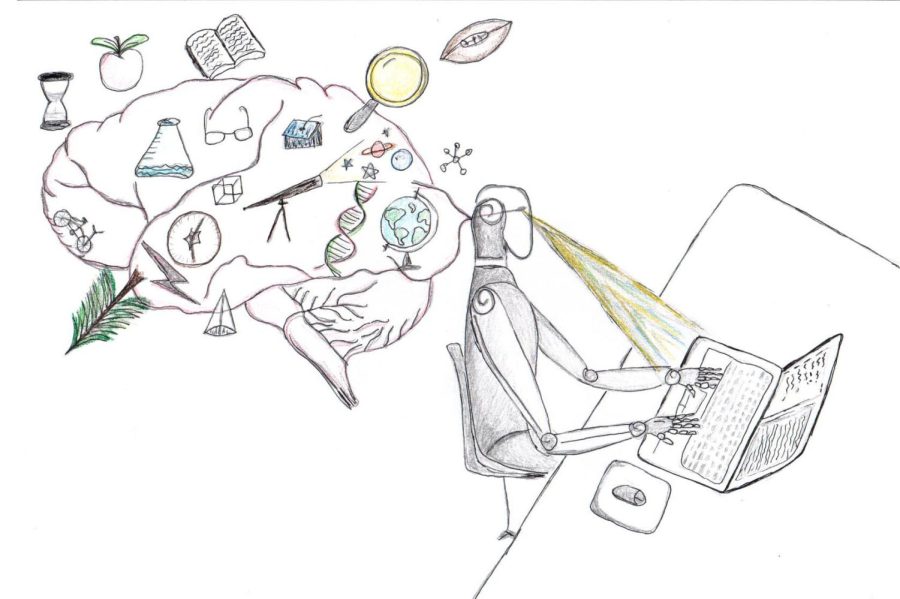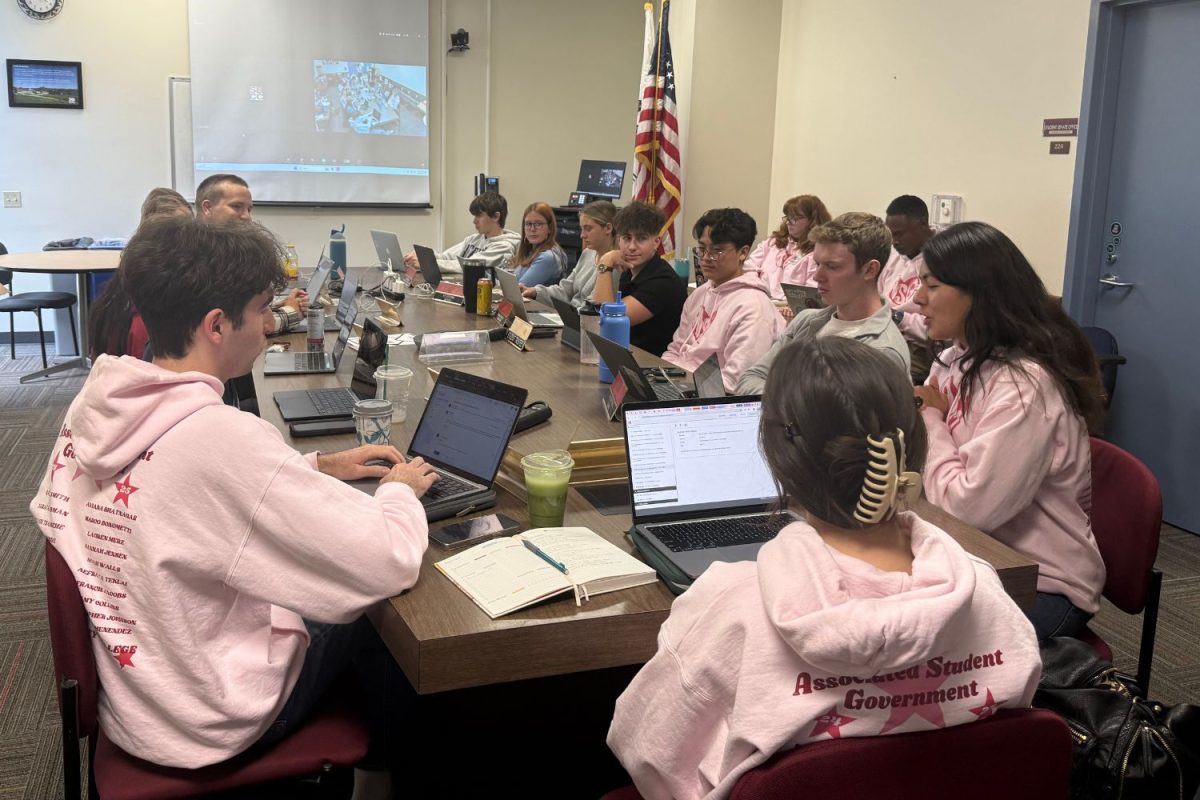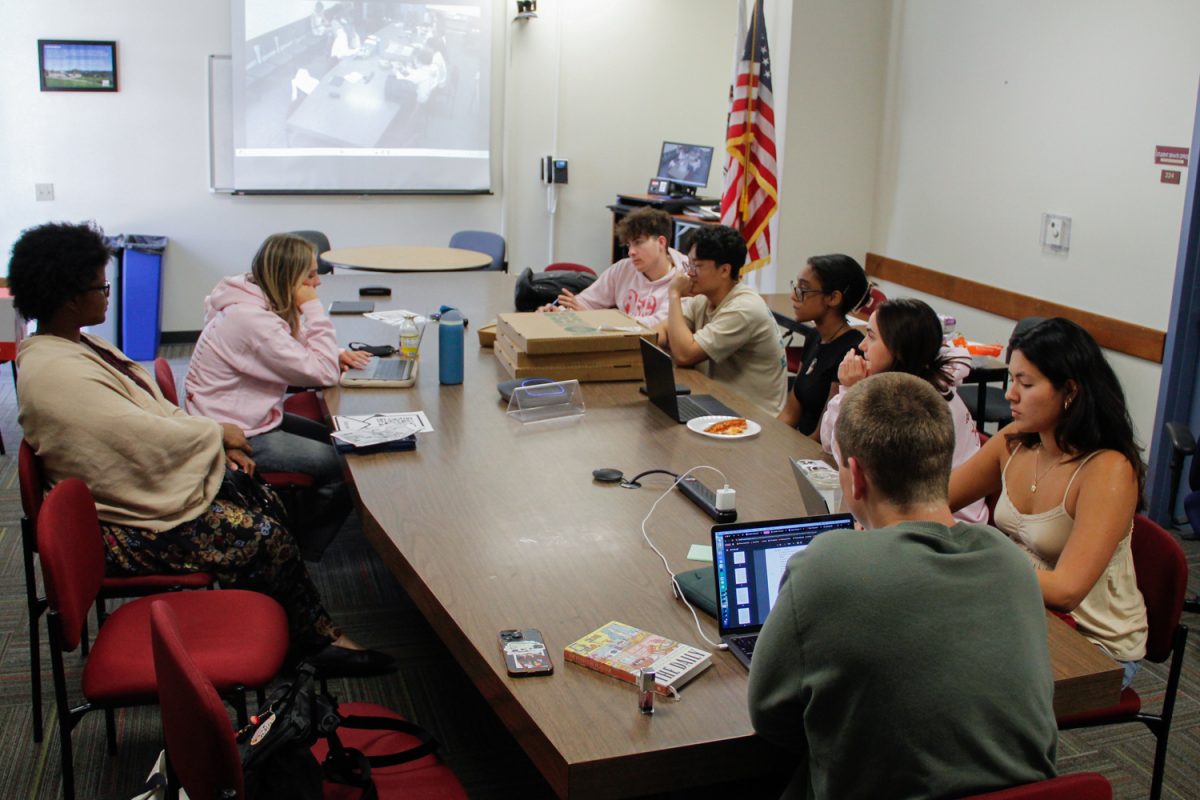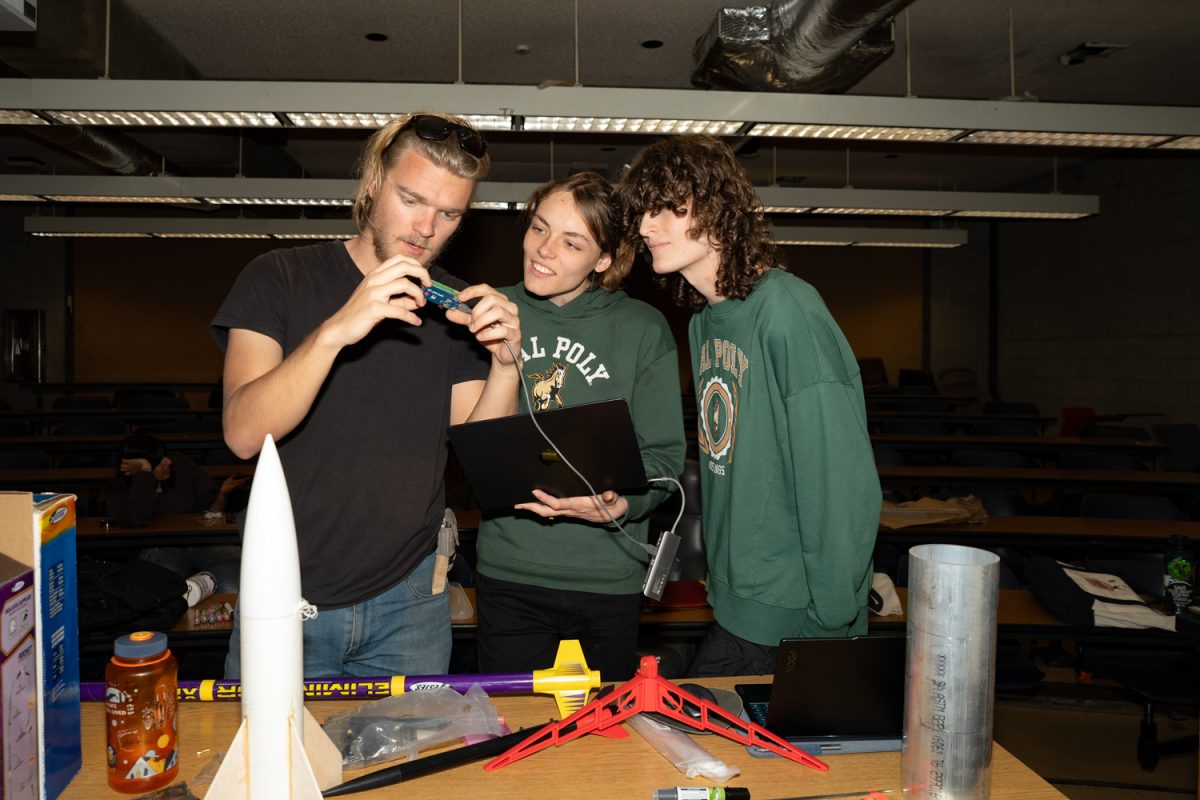Three months after the release of artificial intelligence technology ChatGPT, new concerns have been introduced within academia that have never been seen before. The global phenomenon unveils new pathways for academic dishonesty while also opening a new realm of possibilities within education.
Behind every students’ computer screen is a mechanism that has uprooted many foundations. Professors are faced with the challenge of redefining curriculum and taking next steps in a technologically growing world.
On Nov. 30, 2022, a San Francisco based artificial intelligence company OpenAI launched its new Chat Generative Pre-trained Transformer (ChatGPT), a complex language processing AI that has the ability to generate human-like content.
In a world of technology that is seemingly limitless, the advancements have reached unimaginable heights with the introduction of a chat box that can answer complex questions, write emails, formulate essays, and interpret or generate code.
“Everyone from students, to professors, to industry leaders, wherever the human hand of writing really takes place, anywhere there is a profession where language is what we do and what distinguishes us, is on high alert about this AI,” Joshua Ramirez, a professor of psychology at City College said.
Less than one week after its release, OpenAI CEO Samuel Altman tweeted that ChatGPT had reached over 1 million users. Two months later, it had received over 100 million users, making it the fastest growing computer application to date.
In the ever-changing world of technology, many sectors of education are grappling with the best ways to maneuver teaching with the looming concerns of ChatGPT.
Dean of Arts, Humanities, and Social Science and former history professor Elizabeth Imhof discussed how educators will be forced to decide whether to embrace or ban the use of ChatGPT in the classroom.
With arguments on both sides of the conversation, Imhof summarized that teachers who ban digital AI altogether will have to create new assessment methods to validate the credibility of students’ work. Alternatively, if teachers decide to implement this tool into their curriculum, there are a multitude of creative options on how to use the digital chatbox to their advantage.
Teaching cooperatively with technology of this magnitude can manifest in many different ways. Ramirez proposed the ideas that ChatGPT can be used for language conversion, breaking apart research jargon into simpler terms, or used as an advanced search engine.
City College students have already begun to test the limits of the AI.
“I used ChatGPT to do some basic tasks,” said Noah Murphy, a marine biology major at City College. “Organizing information into charts and solving physics problems.”
With such a wide range of capabilities, many areas of education are affected by ChatGPT including journalism.
In an online webinar hosted by Associated Press(AP) on Wednesday, March 1, experts who work within realms of journalism spoke on this topic.
Regardless of the positive ways in which it can be used, inevitable consequences arise as highlighted by Nicholas Diakopoulos, professor in Communication Studies and Computer Science at Northwestern University, during the webinar.
Diakopoulos also focused on the extensive list of limitations, including accuracy, confidentiality, copyright, biases and cost. He informed the audience that drawbacks should be considered when analyzing the effects of the generative AI.
When signing up for ChatGPT, there is a series of disclaimers that are presented on the screen. Primarily, there is an explanation that the information presented is constantly being recycled in order to grow the capabilities and accuracy of the AI. Additionally, there are warnings that the information may be misleading and users should refrain from sharing sensitive content.
The initial launch was presented as a “free research preview” where the site could be accessed globally for free. However, once the tool is guarded by a paywall it then becomes a question of student equity.
In response to the release of ChatGPT, 22-year-old Princeton University student Edward Tian created a counteractive tool that can detect work produced by the AI. GPTZero is now used by professors around the world in an effort to prevent plagiarism.
Though Tian’s work is founded on the principle of extinguishing the use of ChatGPT, his personal views hold a different perspective.
“I think it’s absolutely the future; it’s here to stay,” the computer science major said during the Associated Press webinar. “Students deserve to be exposed to it, but we need to use it responsibly.”
The future is still unclear for many faculty members at City College and other schools around the world.
Every year, Imhof co-facilitates an annual retreat for training new and returning faculty on relevant school wide issues. This year is modeled on the theme of ChatGPT and restorative justice where City College professors will be educated and trained on the significance of ChatGPT within education and how to curate a restorative justice view when adapting new curriculums.
City College is offering a zoom informational forum and panel discussion from 2 to 2:50 p.m. on Wednesday, March 8 where faculty members will bring their questions, needs and concerns.
“We need to flip this jeopardy style,” Ramirez said. “If you are going to use this [AI] to find information, you need to learn how to be an investigator and ask the right questions.”











![Ken Watts uses the cable chest press machine on April 9 in Santa Barbara, Calif. "[What] people value the most in personal training is accountability," Watts said.](https://www.thechannels.org/wp-content/uploads/2025/04/MGSWatts-3-1200x800.jpg)



